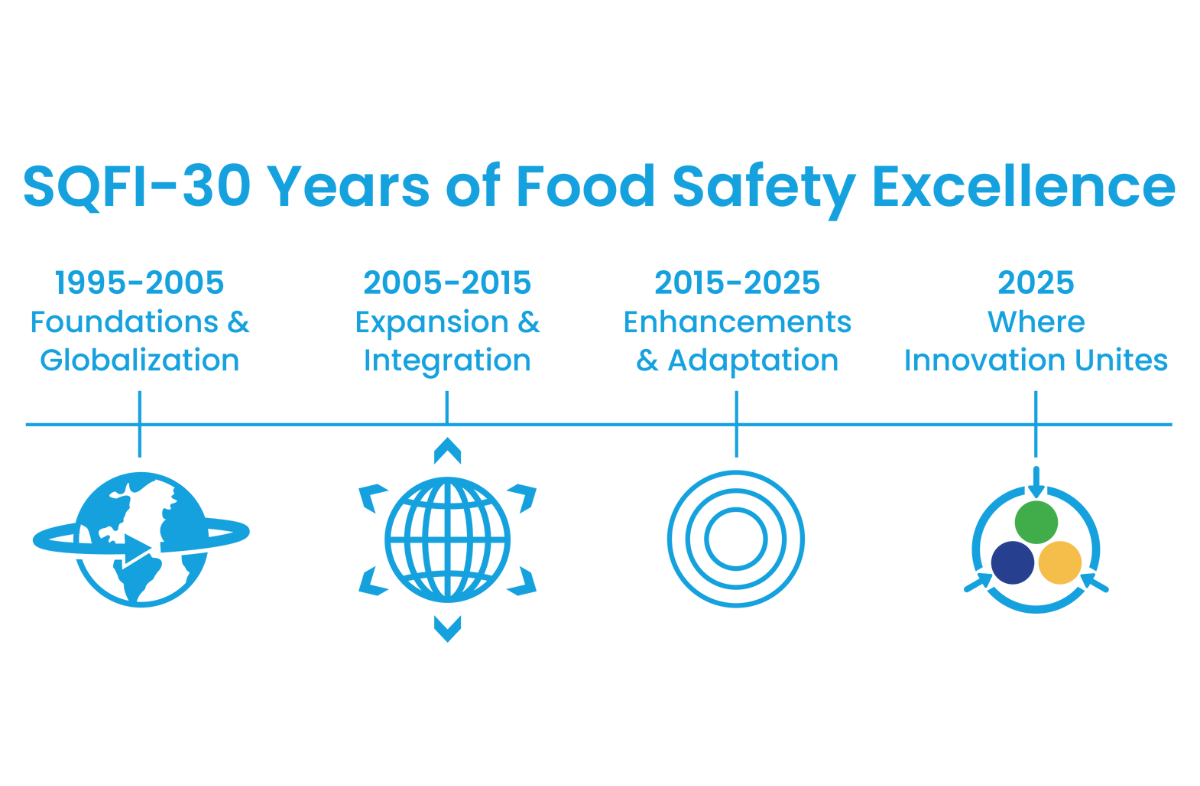
Creating a company culture of food safety is challenging, but sustaining it once it is established requires even more commitment. Whether a company is taking small steps or huge strides in cultivating an environment in which food safety reigns supreme, FMI was there to help in 2017.
FMI’s Center for Retail Food Safety and Defense supported FMI members’ commitment to sell safe food to customers by providing regulatory and technical support, developing relevant training resources and guides, and fostering relationships with an expanding food safety network. A food safety practitioner’s work never ends, so FMI aims to advance science and technology, develop innovative food safety solutions and increase adoption of industry best practices.
Each year, FMI’s Food Protection Committee (FPC) establishes initiatives that serve as the focus of the committee’s work for the year. Its initiatives focused on dealing with new regulations, managing recurring food safety problems and tackling basic cleaning and sanitation practices in constantly busy store environments.
2017 Food Safety Initiatives:
FSMA Implementation and Compliance
FSMA remains a priority as compliance dates became effective for several FSMA rules. Since the FDA began FSMA inspections this year, FMI Food Safety and Government Relations teams have continued to prepare members for FSMA implementation by providing training, hosting webinars, offering technical support and developing tools and resources to assist retailers and wholesalers to better understand the FSMA rules to work toward compliance.
FMI continued to work closely with the Food Safety Preventive Controls Alliance, a public-private alliance of key industry, academic and government stakeholders, to deliver effective training and solutions to retailers that assist with their FSMA compliance.
Menu Labeling Implementation
FPC provided technical support on the Menu Labeling Implementation Guide to assist retailers with implementing menu labeling and with submitting comments to the FDA about a delay in enforcement until May of 2018.
Recalls
Retailers are experts in recall execution. Undeclared allergens are the leading cause of U.S. food recalls and retailers are affected by supplier initiated recalls and recalls from foods prepared in store. For this reason, in September 2017, the FMI Foundation awarded a research grant to the Food Allergy Research and Resource Program at the University of Nebraska – Lincoln to identify the root causes of allergen labeling errors and provide guidance on ways to mitigate undeclared allergen recalls.
Listeria Prevention and Control at Retail
Listeria prevention continues to be a priority for the entire food industry because of the public health risk of the bacteria and the consequences of regulatory actions. Building on the FMI Listeria Action Plans and the previous research funded by the FMI Foundation, the workgroup examined the role of sanitary design in Listeria prevention based on research and industry best practices.
Cleaning and Sanitation Practices
Food safety is dependent on mastering the basics. Implementation effective cleaning and sanitation programs is essential to establishing a strong food safety foundation. FMI continues to work with industry partners to identify innovative tools and technology for cleaning and sanitation.
Recognizing the Innovators:
FMI also demonstrated its commitment to the advancement of food safety by presenting the first annual FMI Food Safety Innovation Award in conjunction with the International Food Protection Training Institute to recognize companies that have made an innovative contribution or commitment to food safety.
Retailers and wholesalers remain committed to preventing food safety contamination, developing strategic partnerships and utilizing innovative technologies—continuing our perpetual quest of enriching lives by selling safe and nutritious food to feed families across the world.


 Industry Topics address your specific area of expertise with resources, reports, events and more.
Industry Topics address your specific area of expertise with resources, reports, events and more.
 Our Research covers consumer behavior and retail operation benchmarks so you can make informed business decisions.
Our Research covers consumer behavior and retail operation benchmarks so you can make informed business decisions.
 Events and Education including online and in-person help you advance your food retail career.
Events and Education including online and in-person help you advance your food retail career.
 Food Safety training, resources and guidance that help you create a company food safety culture.
Food Safety training, resources and guidance that help you create a company food safety culture.
 Government Affairs work — federal and state — on the latest food industry policy, regulatory and legislative issues.
Government Affairs work — federal and state — on the latest food industry policy, regulatory and legislative issues.
 Get Involved. From industry awards to newsletters and committees, these resources help you take advantage of your membership.
Get Involved. From industry awards to newsletters and committees, these resources help you take advantage of your membership.
 Best practices, guidance documents, infographics, signage and more for the food industry on the COVID-19 pandemic.
Best practices, guidance documents, infographics, signage and more for the food industry on the COVID-19 pandemic.
